Ae Dil Hai Mushkil actress, Anushka Sharma recently visited a ‘Love Lock’ place in Paris.
For those who are wondering what love lock is- A love lock or love padlock is a padlock which couples lock to a bridge or gate to symbolise their love for each other.
Anushka, who is currently busy shooting in the city for her upcoming movie, Ae Dil Hai Mushkil visited one of the bridges. Question which pops up is, Who’s name did she lock on the bridge? Virat Kohli? No! It wasn’t Virat this time, but her pet dog Dude. Dude is Anushka’s pet dog and she is very fond of him.
Bombay Velvet star have been seen sharing several pictures with her fans on her Instagram account, which shows the amazing bonding between the two. Isn’t the gesture too adorable?
The Aam Aadmi Party today dissolved its Maharashtra unit, triggering a sharp reaction from its National Executive member Mayank Gandhi, who said the party convener and Delhi Chief Minister Arvind Kejriwal is ‘hell-bent on destroying’ the organisation by playing ‘gutter politics.
The decision, posted on AAP website, said the party’s Political Affairs Committee (PAC) has dissolved “all bodies in Maharashtra.” Reacting to the development, Gandhi, the most prominent face of AAP in Maharashtra, alleged that Kejriwal is determined to finish the party’s root in the state. “AAP people had entered politics by forming a party to clean the gutter, but unfortunately on the contrary, members got overpowered by the gutter politics,” Gandhi told PTI. He took to twitter to express his resentment and said “Beautifully functioning Maharashtra teams dissolved. Sad that politics has won!.” “Let the high command expel me from the party, but the truth is that the high command himself is hellbent to finish the party’s root in Maharashtra,” he said. Gandhi had strongly spoken against removal of founder members of AAP like Prashant Bhushan and Yogendra Yadav from the PAC in March and said he will continue to raise his voice. In a veiled reference to Kejriwal, Gandhi said, “It is now true that AAP has only one voice in the party. Whosoever, puts different voice, not matching with high command, he is kicked out.” “Two type of politics, one that works with the people on the ground and other that do chaplusi in Delhi. The second type has won. Jai ho.,” (sic) he tweeted. According to the party, the decision to disband its state body is part of its process to restructure and strengthen the unit. “In ongoing process of strengthening the organisation in various states, the PAC has decided to dissolve all bodies in Maharashtra,” it said on its website. National Secretary Pankaj Gupta will be in-charge of the state and under him a team will work on organisation building in the state. The new structure will take shape in a very short time. All party members are requested to cooperate with this team in organisation building,” it added. AAP’s Maharashtra unit president Subhash Ware was not immediately available for his comment on the development. However, party sources said the state unit has been in the grip of intense factionalism for quite some time with a section of functionaries resenting the way leaders like Prashant Bhushan and Yogendra Yadav had been forced out of the organisation by the central leadership. A state executive member, who does not want to be identified, said Kejriwal is interested only in building the party in his home turf Delhi and has no interest in helping it grow in other parts of the country. –
Superstar Hrithik Roshan’s former wife Sussanne Khan has slammed reports that she is set to tie the knot with actor Arjun Rampal, saying she is a “proud” single mother.
It has been long speculated that the interior designer’s friendship with Arjun, who is married to former model Mehr Jessia, was the cause of her split from Hrithik, 41, in 2013 after 13 years of marriage.
The former couple has two sons Hrehaan, seven and Hridhaan, five.
Recently reports surfaced that Sussanne was set to walk down the aisle with one of Hrithik’s “close friends”.
Just earlier this week, it was reported that Sussanne, 36, and Arjun, 42, were spotted at a coffee shop in Mumbai.
Rubbishing the rumours, Sussanne said, “Persistent speculation in the media has made me realise that idle Bollywood gossip mongers, who are influential, are insistent on spreading rumours and lies about me. Stories are fabricated on upcoming weddings and meetings in coffee shops.”
“It is irresponsible press if incorrect stories are published. There are families and human feelings involved and it hurts people when false gossip is passed off as true. I am a single working mother and take tremendous pride in the way I live,” she further said in her statement.
Arjun and Mehr, who are parents to two daughters, have been hit by split rumours for sometime now.
The couple, who have been married for 17 years, put up a united front at the Lakme fashion week last month, where they arrived together to attend designer Monisha Jaisingh’s show.
Coco (2017)
| Release | : | 2017-10-27 |
| Country | : | United States of America |
| Language | : | English,Español |
| Runtime | : | 108 |
| Genre | : | Adventure,Animation,Comedy,Family |
Synopsis
Watch Coco Full Movie Online Free. Movie ‘Coco’ was released in 2017-10-27 in genre Adventure,Animation,Comedy,Family.
Despite his family’s baffling generations-old ban on music, Miguel dreams of becoming an accomplished musician like his idol, Ernesto de la Cruz. Desperate to prove his talent, Miguel finds himself in the stunning and colorful Land of the Dead following a mysterious chain of events. Along the way, he meets charming trickster Hector, and together, they set off on an extraordinary journey to unlock the real story behind Miguel’s family history.
Streaming Movie Coco
(2017) Online
Incoming search term :
Watch Coco Full Movie Online Free Streaming In HD Quality, watch full Coco movie, Watch Coco 2017
Online Free Viooz, Watch Coco 2017 Online Free, Watch Coco 2017 Online Putlocker, film Coco
online, Streaming Coco 2017 For Free Online, streaming movie Coco 2017, Coco film trailer,
Coco movie trailer, live streaming film Coco 2017, Streaming Coco 2017 Online Free Megashare,
movie Coco streaming, Watch Coco 2017 For Free online, film Coco 2017 online streaming,
download Coco 2017 movie now, movie Coco 2017 download, watch full movie Coco 2017, trailer
film Coco 2017, Watch Coco 2017 Online 123movies, Watch Coco 2017 Online Free 123movie, Watch
Coco 2017 Online Free Putlocker, movie Coco 2017 trailer, Watch Coco 2017 Online Free
netflix, watch Coco film online now, Coco 2017 movie streaming, Coco 2017 Watch Online, Watch
Coco 2017 Online 123movie, download movie Coco, Watch Coco 2017 Online Free megashare, watch
Coco movie now, Watch Coco 2017 Online Free hulu, Watch Coco 2017 Online Viooz, live streaming
movie Coco 2017, Coco live streaming film online, movie Coco 2017, Watch Coco 2017 Online
Megashare.
Like Agatha Christie’s famous whodunit, the Bihar election started with an impressive list of issues: development, susashan, jungle raj, people’s DNA, special status and economic package. But one of by one all of them dropped off, leaving just one behind: caste equations.
Every dialogue emerging from Bihar’s theatre of elections suggests that all parties have now cast jaatiwad in the lead role. On Wednesday, BJP president Amit Shah set the tone of his week-long campaign by reaffirming his party’s faith in reservation system based on castes: “Since the Constitution was drafted, the BJP has been supporting reservation. Lalu ji is saying that if the BJP comes to power here then they will remove reservation. Lalu ji is telling safed jhoot,” Shah said at Begusarai.
Just a day ago, caste was the theme of another BJP leader’s Bihar dream. “If the BJP wins the election, the CM will not be from a forward caste,” party MP and CM-aspirant Giriraj Singh said.
It is not without reason that the BJP B-listers have brought caste back in the spotlight even when Prime Minister Narendra Modi continues to talk about development. The equations in the closely-contested election are now stacked up in such a manner that minor swings on caste lines can change the outcome dramatically.
The upper caste voters are solidly behind the BJP. But they are being neutralised by the support the Mahagathbandhan is getting from Muslims, Kurmis and a sizeable portion of Yadavs. The NDA is banking also on the support of Paswans and Kushwahas, whose leaders Ram Vilas Paswan and Upendra Kushwahas are part of the alliance.
The BJP had entered the Bihar fray with its clever strategy of keeping its own vote bank intact and carving out huge chunks from that of the JD (U)-RJD-Congress alliance. With this objective in mind, it lured leaders from other communities like Pappu Yadav, Jitan Ram Manjhi and Ramkripal Yadav into its fold. The NDA appeared to be gaining initially also because of the rift within the secular front: factors like the exit of Mulayam Singh’s from the Mahagathbandhan and entry of the Left and MIM in the poll fray.
Modi’s rallies in September built the momentum further for the BJP, especially when discussions veered around development and the Rs 1.25 lakh crore package announced by the PM.
And then, caste made a comeback.
Some of the credit for making caste a major issue again in Bihar must go to the RSS chief Mohan Bhagwat. His interview to the Organiser in which the RSS chief suggested a review of the existing reservation system gave the Mahagathbandhan an opening to redraw the battle lines.
“This is a fight between backwards and forwards,” Lalu Yadav announced dramatically, daring Bhagwat to tweak the reservation system if he had any dum in his moonch.
Lalu’s plan is simple. He knows his party has no chance to make a dent in the BJP vote bank of Brahmins, Vaishyas, Baniyas, Rajputs, Bhumihars and Kayasthas, or among supporters of Ram Vilas Paswan and Upendra Kushwaha. The Mahagathbandhan can win only if the backwards, especially the politically significant Extremely Backward castes unite against the BJP and the Mahadalits remain with Nitish Kumar.
The EBCs — or the pachpaniyas, as they are known locally — are a loose coalition of castes scattered across Bihar. They are believed to be between 20 and 25 per cent of the electorate. In a deadlocked election, their support could be decisive. So, both the alliances are now vying for their votes.
At the start of the campaign, it seemed that the EBCs were tilting towards the BJP, mainly because of fear of the return of Yadavs in power, who they see as their rivals among backwards. But the OBC vs EBC narrative may have now given way to the Forward vs Backward debate.
The current direction of the political discourse, where the Mahagathbandhan is setting the caste-based agenda and the BJP is playing catch-up, suggests the equations may be changing again on the ground.
Who will win? Well, even Agatha Christie would have found it difficult to predict the outcome of this thriller.
According to a report published in a leading daily, a whooping 92 crore Indians have Aadhar card now.
Significantly, India being world’s largest democracy have 60 crore citizens with voter ID card. Compared to Aadhar card, number of people having passports and PAN card is abysmally low.
Government is trying to increase transparency by linking several social welfare schemes to Aadhar based bank accounts.Programmes like MGNREGA are now linked to Aadhar. In a landmark judgment, SC said government can’t make Aadhar mandatory, however it can be used for different government schemes.
Update: We’ve been informed that Ojha’s band was Gorkha. Listen to them here, as they’re pretty cool. Thanks to Emilio for the heads up.
We all know scientists love metal. After a long day of peering at beakers as the fluid in them changes color, anyone would need to go apeshit to some Hate Eternal, just to cool off. But though finding the heaviest of metals and naming hideous pests after Dave Mustaine is cool, rarely do metalhead scientists discover something as monumental as, say, flowing water on Mars.
But Nepalese-American grad student Lujendra “Luju” Ojha did just that. According to CNet, Ojha is one of the discoverers of recurring slope lineae, the lines of flowing salt water that were observed on Mars this week. But it’s this photo from Ojha’s website, featuring the scientist bellowing in a death metal band, that seemed to most interest the reporter interviewing him:
When asked about the photo, Ojha responded with some modesty:
“Yeah, that was an old life,” Ojha confesses with a laugh. “I was kind of in poverty with music. I wasn’t making enough money so I said screw music, let’s go to science, maybe there’s more money in it. But there isn’t money in science either.”
Aw! It’s a shame Ojha feels the need to play down his former metal glory. Then again, when you’ve made one of the most important scientific discoveries of all time, you’re probably not as concerned with people knowing how true you are.
Sadly, we can’t find any listing of a Lujendra Ojha on Encyclopedia Metallum, but if anyone knows anything about his band, let us know!
Thanks to David for the heads-up!
JAMUI, BIHAR: Likening the Bihar election to hosting a wedding, and Chief Minister Nitish Kumar to a “dulha” or bridegroom, Rashtriya Janata Dal chief (RJD), Lalu Prasad, has taken a dig at the BJP led National Democratic Alliance for not having a chief ministerial candidate.
“We, the grand alliance, have dulha (bridegroom) Nitish Kumar. But BJP-led NDA has no dulha,” said Mr Prasad while addressing a rally in Jamui district.
The former Bihar chief minister, in his inimitable style, said that people would reject such a marriage party which lacks the bridegroom.
Mr Kumar is the face of the grand alliance led by his party, the Janata Dal (United), RJD and the Congress.
BJP leaders have maintained that the election will be fought on the achievements of Prime Minister Narendra Modi and the NDA government, and the chief ministerial candidate would be decided after the elections, if their alliance wins a majority.
On the issue of the reservation policy, Mr Prasad said, “Till Lalu is alive, reservation for Dalits and OBCs cannot end. RSS and BJP are keen to end reservation,” referring to the Rashtriya Swayamsevak Sangh (RSS) chief Mohan Bhagwat’s suggestion to review the country’s reservation policy.
The BJP has clarified that Mr Bhagwat’s comments are being deliberately misread by other parties. The RSS is the ideological mentor of the BJP.
The former chief minister also sought to caution the voters, saying that BJP workers from Gujarat and Madhya Pradesh are visiting rural Bihar in large numbers to spread hatred and create communal tension for the party to advantage from it politically.
Bihar goes to polls in five phases between October 12 and November 5.
Almost all opinion polls have predicted a neck and neck fight between the BJP-led NDA and the grand alliance spearheaded by Chief Minister Nitish Kumar and RJD chief Lalu Prasad.
Trucks from India carrying essential goods and petroleum products started entering Nepal on Wednesday, which is grappling with a fuel crisis due to the blockade of a key trade checkpoint with India by protesters opposing Nepal’s new Constitution. Several cargo trucks entered the Nepali side from Sunauli border in Bhairahawa.
More than 300 trucks carrying essential supplies have been stranded on the Indian side due to the ongoing blockade imposed the Madhesi groups opposing the promulgation of the new Constitution.
Madhesis are Indian-origin inhabitants of the Terai region bordering India who are opposed to splitting Nepal into seven provinces.
At least 40 people have died in over a month of clashes between police and protesters from the Madhesi and Tharu communities and ethnic minorities.
Nepal government enforced the odd-even system for all kinds of vehicles plying in major cities from today in a bid to reduce the impact of the fuel crisis. It has also been rationing petroleum products in Kathmandu to tackle the problem. The blockade in the Nepal-India border point has made life harder for the people of Nepal for the past 4-5 days.
Some people in Nepal blame India for the shortage by imposing an embargo. India denies imposing blockade, saying truck drivers are concerned for their safety after protests in the country.
Twelve persons have been convicted for their involvement in the 2006 serial blasts in Mumbai that killed over 180 persons. The trial has been on now for the last nine years.
While initial reports said five had been convicted, reports later said that 12 of the 13 accused have been convicted while one person has been acquitted.
The accused convicted by the court are: Faisal Shaikh, Ali Bashir Khan, Mohammad Ali, Majid Shafi, Sajid Ansari, Kamal Ansari, Ethesham Siddiqui, Zameer Shaikh, Sohail Shaikh, Muzammil Shaikh, Tanvir Ansari and Naved Hussain.
The accused were convicted under the stringent Maharashtra Control of Organised Crime Act (Mcoca), special public prosecutor Raja Thakre said.
Abdul Shaikh was the only accused to be acquitted by the court, reported CNN-IBN.
“Arguments on sentencing of the accused will take place on Monday,” Thakre said.
Here’s everything you need to know about the case:
The blasts
Seven blasts in crowded Mumbai local trains took place on the evening of 11 July 2006 in which a total of 189 persons were killed. Over 820 people were injured in the blasts.
The blasts took place at Mahim and Matunga in central Mumbai and at Khar, Bandra, Jogeshwari, Mira Road and Borivali in the northern suburbs. All the blasts took place on the Western Railways line of the city’s suburban rail network.
The blasts were allegedly engineered using a mixture of RDX and ammonium nitrate. The explosive mixture was allegedly packed into seven bags which were then placed in trains leaving from Churchgate in south Mumbai for the suburbs. The bombs were planted in the first class coaches of the trains.
AFP imageAFP image
The accused and the alleged plot
The Maharashtra Anti-Terrorism Squad had arrested 13 persons for their alleged involvement in the case. The police has said that the accused were linked with terror group Lashkar-e-Taiba and banned group Students Islamic Movement of India (SIMI).
They are: Faisal Shaikh, Ali Bashir Khan, Mohammad Ali, Majid Shafi, Sajid Ansari, Kamal Ansari, Ethesham Siddiqui, Zameer Shaikh, Sohail Shaikh, Muzammil Shaikh, Tanvir Ansari, Naved Hussain and Abdul Shaikh. One of the accused, said to be a Pakistani, allegedly died in the blasts.
The police has said that the bombs were assembled at Mohammed Ali’s house by the accused, along with Pakistani nationals.
Former Mumbai police commissioner AN Roy, at the time of filing of the chargesheet, had said that there were allegedly 14 people involved in the planting of the bombs.
“They were divided into seven teams, each consisting of a Pakistani national and an Indian national. We have arrested five out of the seven Indian nationals. One out of the seven Pakistanis died at the blast site, while we have asked for the other six who are reportedly hiding in Pakistan to be externed,” Roy was quoted as saying in a Mumbai Mirror report.
All 13 have been charged under sections of the Maharashtra Control of Organised Crime Act (MCOCA), Indian Penal Code, Unlawful Activities Prevention Act, Explosives Act, Railway Act, Passport Act and Prevention of Damage to Public Property Act. They face a maximum punishment of the death penalty.
The 13 accused have been in prison for seven years already as the trial against them has proceeded.
The police has also named 15 others in the chargesheet in which Lashkar-e-Taiba’s Pakistan-based leader Azeem Cheema has been named as the prime conspirator.
Trial so far
The verdict is set to come a year after special judge YD Shinde concluded the trial. At the time he had declared that the judgement could be announced on 19 September, 2014.
The prosecuting agency, state Anti Terrorism Squad (ATS), had examined 200 witnesses in the case against 13 accused, while the defence lawyers examined a total of 40 witnesses.
The ATS has filed a chargesheet that runs into over 10,000 pages.
Special public prosecutor Raja Thakare, who appeared for the ATS in this case, said the court must be ensuring that all the evidence and arguments of both the prosecution and defence is covered in the judgment and there are no loose ends.
“During the trial, we (prosecution and defence lawyers) submit a lot of evidence and judgments in support of our arguments. All that has to be perused and considered by the judge before passing judgment. It is a huge task,” Thakare told PTI.
The controversies
The pressure cooker factor: The first controversy in the trial came thanks to a statement made well the chargesheet was filed. When announcing the arrests in the case in 2006, former police commissioner AN Roy had said that the bombs used in the blasts were packed into pressure cookers which were then planted on the trains.
However, the pressure cooker theory was later found missing in the chargesheet in the case. The police justified its absence saying that they had mentioned “household items” in the chargesheet. But at the end of the trial, the special public prosecutor told the court that pressure cookers “could have been used”. This, despite the fact, that none of shopkeepers from where the cookers were allegedly bought were examined by the prosecution during the trial.
Torture: The accused in the case have accused the police of torture in order to extract confessions. Confessions are admissible as evidence under Mcoca. Two of the accused filed an application before the court accusing the police of torture. Media outlet Gulail had released interviews with some of the accused using hidden cameras in which the Mumbai Police was accused of torture. Here’s the video:
The police has argued that the claim of torture is part of the Al-Qaeda manual on terrorism and the accused are merely following it.
The Indian Mujahideen factor: In 2008 the Mumbai police claimed to have confessions from three members of terror group Indian Mujahideen, who said they had carried out the blasts. Sadiq Shaikh, Arif Shaikh and Mohammed Saif claimed that the explosives had been procured by Indian Mujahideen chief Riyaz Bhatkal. The bombs were allegedly assembled at a house in Sewri before they were placed on trains.
Bhatkal, who was later arrested, claimed that the blasts were carried out by the group to avenge the 2002 Gujarat riots. Bhatkal allegedly claimed that explosives were brought in from Karachi, which was smuggled into India. It was then allegedly taken to Azamgarh and transported to Mumbai by two persons where the bombs were assembled. The ATS, however, stuck to its stand on the 13 accused and has not included the alleged Indian Mujahideen as accused in the case.
The call data records: The accused have claimed call data records for many of them punch holes in the police theory about the blasts. The defence has shown call data records to indicate that four of the accused were nowhere near where the police has claimed they were.


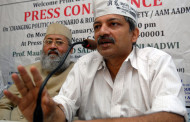

![Online [Free Watch] Full Movie Coco (2017)](http://www.realnewsofindia.com/wp-content/uploads/2015/10/wasim-akram-190x122.jpg)


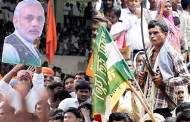


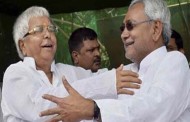
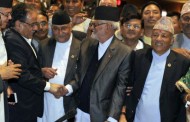
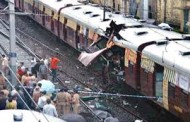





Recent Comments